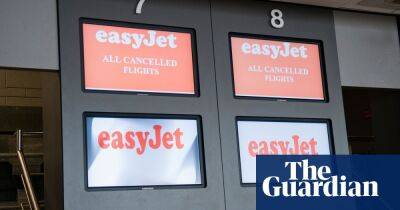Why the UK’s dire rates of sick pay bode ill for the economy
EasyJet removing seats from its planes, Tui no longer serving meals on flights, and bus companies cutting services. From the headlines, Britain appears to have a big problem with sickness absence as Covid adds to staff shortages across the economy.
But these incidents apart, the big picture is very different. Thanks to low sick pay – now back to pre-Covid levels despite Boris Johnson’s promise to “build back better” from the health emergency – Britain has among the fewest working days lost to illness in the developed world.
Sickness absence rose last year as the economy reopened, from a record low in 2020 when the pandemic reduced socialising and people could keep logging on from home despite illness. However, despite rising from 3.6 to 4.6 days a year, the average number of days lost to sickness has been falling steadily – from seven a year in the mid-1990s. Even with Covid and a bigger workforce, almost 36m fewer working days were lost in 2021 compared with 1995, a decline of a fifth to 149.3m.
Critics say the government skipped a golden opportunity in the Queen’s speech last week to boost workers’ rights, and that Johnson’s party is out of ideas for fixing the cost-of-living crisis. After his election landslide in 2019, he promised an employment bill, yet, to the dismay of unions and employers’ groups, failed to take action last week.
“If the period after a pandemic, where the inadequacy of the system has been thrown into sharp relief, isn’t the right time, when is?” said Rachel Suff, policy adviser at the Chartered Institute of Personnel and Development (CIPD). A survey of 6,000 workers by the trade body for HR professionals found that over the past three months, almost half of employees went to work despite not feeling
Read more on theguardian.com


![How Avalanche’s [AVAX] partnership with Chainlink [LINK] cost it over 25% - ambcrypto.com](https://finance-news.co/storage/thumbs_400/img/2022/6/13/29368_6u33.jpg)












![Is BAYC losing significance with ApeCoin [APE] losing over 34% in a week - ambcrypto.com - city Santiment - Beyond](https://finance-news.co/storage/thumbs_400/img/2022/6/12/29353_r38l.jpg)



